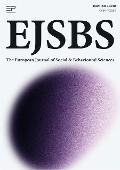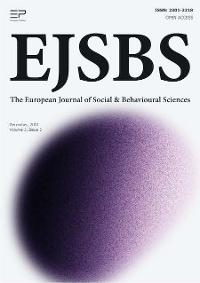Comparison Effectiveness Stability in Two Career Counselling Approaches on Entrepreneurship Skills Over Time
Abstract
The aim of this study was to compare the effectiveness stability of Shafiabadi's multi-axial model using and Gottfredson's theory of circumscription and compromise during the time. Statistical population was humanities graduate volunteer students of Islamic Azad University, Tehran Science and Research Branch, who attend to entrepreneurial classes. According to random sampling 45 individuals were selected among people who had been achieved fewer scores in the entrepreneurship skills questionnaire and randomly were replaced in three groups 1, 2 and control. Researcher's made questionnaire tools for entrepreneurship skills was used that its content validity, construct, and criterion were approved. Its credibility was calculated 0.90 by Cronbach's alpha coefficient. Test groups of one and two received respectively eight training entrepreneurship sessions based on Shafiabadi's model and Gottfredsons' theory. the control group has no intervention. Results showed that both of two groups are effective to increase entrepreneurship skills and multi-axial model is more effective. A month later, both two groups were tested again to investigate stability results. Also, results showed that findings of both two groups were stable over the time and multi-axial model is more stable.
Keywords: Ability function, career counseling, entrepreneurship skills, over time
Introduction
Entrepreneurship is a process which creates new and valuable object and leads to personal satisfaction, independence, and financial benefits that has done with spend time, much effort, and acceptance of various financial, psychological, and social risks (Jahaniyan, 2008, p. 2004). Nowadays, mastery of entrepreneurship knowledge is one of the most widely used and the most popular fields of scientific and economic. Entrepreneurship in business is as a symbol of success and effort. Experts believed that entrepreneurs act as movement and growth engine in society. They move and develop a society in a competitive environment and disequilibrium conditions. So, it can be concluded that entrepreneurship has three important advantages and generates wealth and prosperity for society, also leads to effective innovations and useful, productive, and sustainable occupation in the economic arena (Saljoghi, 2009, pp. 17-18).
So, entrepreneurship education is one of the important aims that various countries have been considered it. Entrepreneurship education is a multi-axial process that causes to acquire knowledge related to Entrepreneurship, solve occupation problems, improve efficiency, identify and stimulate talents and entrepreneurship skills, and induce risk taking. It should be noted that establish and reinforce values and entrepreneurial behavior need to identify and stimulate talents and entrepreneurship skills (Zabihi & Moghadasi, 2006, pp. 160-161).
So, education of entrepreneurship skills is so important and should be considered.
Problem Statement
In spite of the importance of entrepreneurship skills education in foreign and domestic researches, but the role of career counseling has been less attention in this field. Although, guidance and career counseling are integral part of one's life and education. Career counseling can encourage people especially in high school by various methods to think and discuss about occupations and select career and job (Shafieabadi, 2011, pp. 50-52). Even if a person are not already familiar with entrepreneurship skills and just looking to be employed can propelled him toward entrepreneurial behavior with the education of entrepreneurship skills and empowerment him to establish job and occupation.
Research of Jones and English (2004, p. 1), Galloway et al., (2005, p.1), Liaghatdar et al. (2006, p. 73), and Idogho and Ainabor (2001, p. 284) show the effectiveness of general educations of entrepreneurship to enhance entrepreneurship skills, also indicate less attention of researchers to entrepreneurship education based on career counseling theories. Results of Moshaf et al. (2005, p. 49) and Mehrabi (2006, p. 1) just considered the effectiveness of career counseling based on Krumboltz's social learning theory and refused comparison of two theories, especially comparison of native and non-native theories. While, the researches of Sayadi et al., (2010, p. 19), Fekri et al. (2011, p. 1) on effectiveness of Shafiabadi's multi-axial model as well as Fekri's research on (2011, pp. 99-100) effectiveness Shafiabadi's multi-axial model and Gottfredson's theory of circumscription and compromise, indicated that both model is effective on empowerment and growth of entrepreneurship skills.
However, the effectiveness of method is important when it has desirable stability over the time and it is not recognized as a suitable method if its persistence is insufficient. previous research regarding comparison of effectiveness career counseling methods on entrepreneurship is insufficient like conducted research on comparison of their results stability. For example, only research of Sayadi et al. (2010, p. 19) has been considered stability results of Shafieabadi and Tomas & Velthouse methods. This comparison has not been done between two theories of career counseling. Therefore, the present study with aim to obviate existing research gaps is following to compare effectiveness stability of two career counseling methods on entrepreneurship skills during the time.
Research Questions
- Does effectiveness of career counseling based on Shafiabadi's multi-axial model on entrepreneurship skills during the time is stable?
- Does effectiveness of career counseling based on Gottfredson's theory of circumscription, compromise on entrepreneurship skills during the time is stable?
- Is there significant relationship between stability effectiveness of career counseling based on Shafiabadi's multi-axial model and Gottfredson's theory of circumscription, compromise on entrepreneurship skills during the time?
Purpose of the Study
Comparison of stability effectiveness of two career counseling methods on entrepreneurship skills during the time is the main aim of this research. Secondary aims are:
a. Study of stability effectiveness of career counseling based on Shafiabadi's multi- axial model on entrepreneurship skills during the time,
b. Study of stability effectiveness of counseling based on Gottfredson's theory of circumscription, compromise on entrepreneurship skills during the time,
c. Comparison of stability effectiveness of career counseling based on Shafiabadi's multi-axial model and Gottfredson's theory of circumscription, compromise on entrepreneurship skills during the time.
Research Methods
Quasi-experimental method with pre and post-test used in this research. Statistical population was humanities graduate volunteer students of Islamic Azad University of Tehran, Science and Research Branch, who attend to entrepreneurial class. According to random sampling 45 individuals were selected among people who had been achieved fewer score in entrepreneurship skills questionnaire and randomly were replaced in three groups one, two and control. Researcher's made questionnaire tools for entrepreneurship skills was used that its content validity was verified by relevant experts. Its structural validity was evaluated and was deemed appropriate by factor analyses. Its criterion validity was confirmed by comparing the score of entrepreneurs and non- entrepreneurs people. Its credibility was achieved 0.90 by Cronbach's alpha coefficient.
Test groups of one and two received respectively eight training sessions of entrepreneurship based on Shafiabadi's model and Gottfredsons' theory. The control group have no intervention. (F=129.48, P =0/0<0/05). Results showed that both of two groups are effective to increase entrepreneurship skills and multi-axial model is more effective (23.46>11/13). A month later, both two groups were tested again to investigate stability results. Data were analyzed by appropriate statistical methods.
Findings
Since minimum score of entrepreneurship skills questionnaire was 20, maximum was 80 and cut-off point was 50, therefore scores below 50 are considered as lower than average, more than 50 as higher than average and 50 as average score. According to table 1, there is a little difference among students' entrepreneurship skills and follow up stage after implementation of training session. dependent t- test is used to evaluate statistically significant or non-significant of this difference.
According to results of table 2, the difference was not significant between scores of entrepreneurship skills of past-test and follow up stage of 1& 2 test groups. Therefore, results stability was confirmed that means career counseling according to Shafiabadi's multi-axial model and Gottfredson's theory of circumscription, compromise has stability effect to increase follow up stage of entrepreneurship skills (after 30 days). Comparison of average scores difference show that Shafiabadi's multi-axial model has more constant effect on scores of entrepreneurship skills rather than Gottfredson's theory of circumscription, compromise.
Conclusions
Results show that there is no significant difference between score of the past- test and follow up stage of entrepreneurship skills at two test groups 1 & 2. It means that career counseling according to Shafiabadi's multi-axial model and Gottfredson's theory of circumscription, compromise has effect to increase entrepreneurship skills during the time. Compare of average scores difference also shows that Shafiabadi's multi-axial model has more stability effect rather than Gottfredson's theory of circumscription, compromise on scores of entrepreneurship skills.
Results of this study are inconsistent with findings of Moshaf et al., (2005, p. 490) that has confirmed stability effectiveness of career counseling based on Krumboltz's theory on entrepreneurial attitude change and research of Sayadi et.al., (2010, p. 19) has shown identical stability of Shafiabadi's model and Tomas and Velthouse's theory on empowerment consultants that it can be attributed to the nature of skills.
In the other words, skills cannot be easily extinguished like behavior, for example someone gained skill to swim and drive may be does not pay to swimming or driving due to living conditions but as soon as return to situation immediately applied automatically learned skills. High stability of Shafiabadi's model can be attributed to two dimensions of goal and decision in this model that has not been considered in Gottfredson's theory. When a person become familiar with decision's skills and identified his aim, easily will not regret but in Gottfredson's theory, self-concept strongly emphasized that could be re-affected due to iteration of frequent and successive failures on entrepreneurship and could turn into negative evaluation of one's self. Therefore, its influence has less stability.
Acknowledgements
The authors declare that there is no conflict of interest.
References
Fekri, K. (2011). Comparison of effectiveness career counseling based on Shafiabadi's multi- axial model and Gottfredson's theory of circumscription, compromise to increase Entrepreneurship skills and entrepreneurial behavior of Humanities students in Tehran. Science and Research Branch, Islamic Azad University, Tehran Science and Research thesis.
Fekri, K., Shafieabadi, A., Nouranipour, A., & Ahghar, G. (2011). Empowerment of "Empowering women headed households by education of Entrepreneurship skills (planning career counseling sessions based on Shafiabadi's multi-axial mode) . National Conference of female-headed households, Shahid Beheshti University.
Galloway, L., Anderson, M., Brown, W., & Wilson, L. (2005). Enterprise skill for the economy. Education & Training Journal, 47(1).
Idogho, P. O., & Ainabor, A. E (2011). Entrepreneurship Education and Small-Scale Business Management Skill Development among Students of Auchi Polytechnic Auchi, Edo state, Nigeria. International Journal of Business and Management, 6(3), 284-288.
Jahaniyan, M. (2008). Entrepreneurship. Babol: Olume Rayane puplication.
Jones, C., & English, J. (2004). A Contemporary approach to Entrepreneurship Education. Journal of Educational Training, 46(8-9).
Liaghatdar, B. E., Abedi, M. J., & Jafarie, M. R. (2006). A Survey of Entrepreneurship Capabilites of Isfahan University Students. Journal of Research and Planning in Higher Education, 12(40), 73-90.
Mehrabi, R. (2006). Study effectiveness of career counseling based on krumboltz's social learning theory on entrepreneurial attitude change of Job seekers labor department of Isfahan, Master's thesis of Allameh Tabataba’i University.
Moshaf, H., Abedi, M. R., & Bahrami, F. (2005). The effectiveness of career counseling based on krumboltz's social learning theory on entrepreneurial attitude change. Journal of Modern Educational thought, 1(4), 49-66.
Saljoghi, M. (2008). Entrepreneurship, New business development. Kerman: cultural services.
Sayadi.A., Shafieabadi, A., & Karami, A. (2010). Psychological empowerment program based on Shafiabadi's multi-axial model and compare its effectiveness with Tomas & Velthouse's cognitive model among school counselors of Rasht. Journal of cultural counseling, 1(1), 19-48.
Shafieabadi, A. (2011). Guidance and career counseling and vocational and career choice theories. Tehran: ROSHD publication.
Zabihi, M., & Moghadasi, A. (2006). Entrepreneurship theory to practice. Mashhad: Jahane Farda & Nama.
Copyright information

This work is licensed under a Creative Commons Attribution-NonCommercial-NoDerivatives 4.0 International License.


